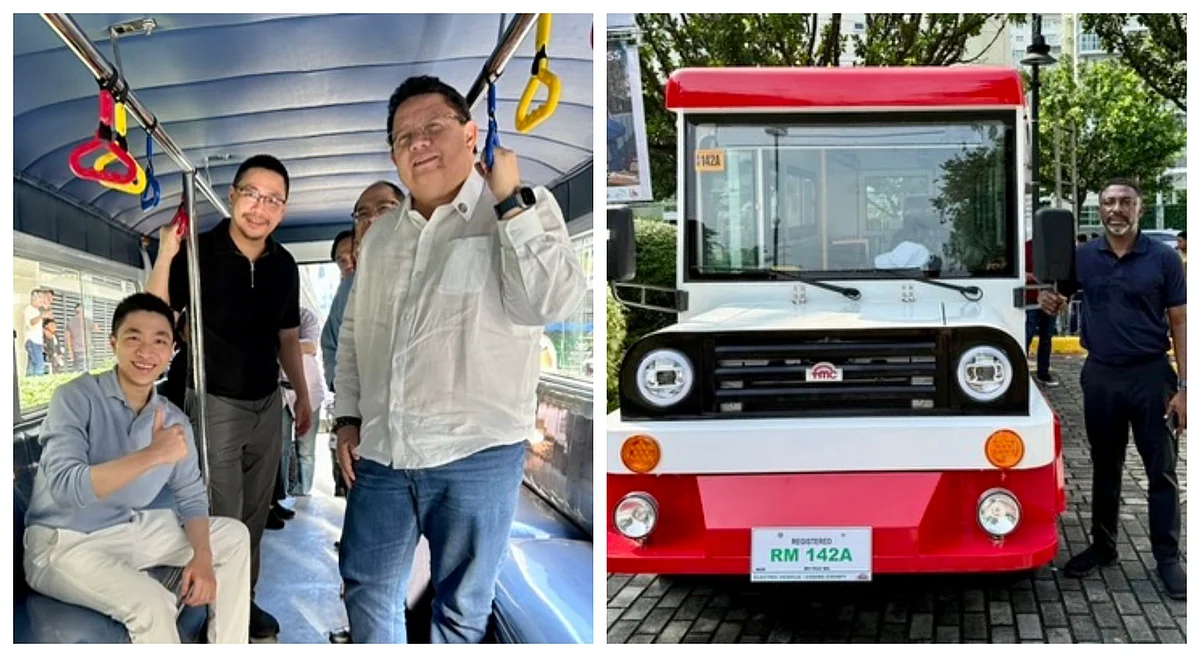Filipino electric passenger vehicles power Africa’s green mobility drive
Move to boost backbone of Lagos public transport before being phased out

Manila: In a landmark development for Philippine automotive manufacturing and sustainable transport, Francisco Motors (FMC), a 100% Filipino-owned company, has signed a historic agreement to export electric passenger vehicles — specifically e-jeepneys and hydrogen-powered tricycles — to Nigeria, marking a significant milestone in the country’s green technology export ambitions.
Francisco Motors, renowned for producing over 250,000 units of its iconic jeepneys domestically, is now extending its expertise to Africa’s largest economy.
The Filipino-made electric jeepney, or e-jeepney, is designed as a modern counterpart to Nigeria’s traditional Molue buses, which were once the backbone of Lagos public transport before being phased out.
The partnership with Nigerian entrepreneur and Honorary Philippine Consul in Lagos, Emmanuel Akpakwu, MFR, aims to introduce clean, efficient, and affordable electric vehicles (EVs) that address Nigeria’s pressing urban mobility and environmental challenges.
In a LinkedIn post, FMC CEO Elmer Francisco (grandson of the automaker’s founder), said the domestic auto manufacturing, if given the right impetus, can compete globally.
“Modernisation isn’t just about importing vehicles, it’s about empowering local industry,” Elmer Francis wrote in a LinkedIn post. “It’s about uplifting the lives of transport operators, commuters, and communities.”
2 models
Francisco Motors will supply two main models: a 15-seater mini-van tailored for corporate transport and a larger 30-seater vehicle intended for local public transit.
Engineered for durability and energy efficiency, these vehicles promise to reduce urban air pollution and reliance on fossil fuels, aligning with Nigeria’s sustainability goals under President Bola Tinubu’s administration.
Beyond vehicle export, the collaboration includes plans to establish local assembly facilities in Nigeria.
This initiative will not only facilitate a sustainable supply chain but also create jobs and develop technical skills within Nigerian communities.
Elmer Francisco, who has a degree in physics from De La Salle in Manila, masters in Wharton and green technology advocate, emphasissed the company’s commitment to supporting Nigeria’s EV market with technical assistance and infrastructure development, including the installation of charging stations.
Partnership
The partnership has strong backing from the Philippine Embassy in Abuja and the Lagos Consulate, signaling robust diplomatic support for this bilateral green technology venture.
The initiative also dovetails with Nigeria’s broader efforts to modernise its public transportation system and reduce carbon emissions, positioning the country as a potential leader in Africa’s EV transition.
This export move reflects the Philippines’ growing prowess in electric vehicle manufacturing, supported by domestic policies such as the Electric Vehicle Industry Development Act (EVIDA) of 2022, which fosters EV production and adoption through incentives and infrastructure development.
Mineral resources
The Philippines is also leveraging its rich nickel resources, essential for EV batteries, to become a competitive player in the global EV supply chain.
The introduction of Filipino electric passenger vehicles in Nigeria is expected to catalyse similar green mobility initiatives across Africa, where innovative charging solutions like battery swapping are gaining traction to overcome infrastructure challenges.
This pioneering export deal exemplifies how emerging economies can collaborate to accelerate sustainable transportation and economic development.
The Filipino e-jeepney’s journey to Africa represents more than just a commercial transaction; it is a symbol of technological innovation, environmental stewardship, and international partnership.
As the world accelerates toward cleaner mobility, the Philippines is stepping onto the global stage as a key contributor to the electric vehicle revolution.
Domestic recruitment
The company is recruiting local workers to help build a nationwide network of associates, people who want to help bring this same system to Transport Service Entities (TSEs) across the Philippines.
FMC is also developing the Domeng Commander, its entry into the Hydrogen Utility Vehicle (HUV) product line-up currently being designed by its Los Angeles team for the global market.
Its design is inspired by FMC’s bulletproof vehicle that Pope John Paul II used in 1995 World Youth Day Celebration.
It is powered by the “HydroVault” hydrogren fuel cell technology, said Francisco.
Sign up for the Daily Briefing
Get the latest news and updates straight to your inbox
Network Links
GN StoreDownload our app
© Al Nisr Publishing LLC 2026. All rights reserved.